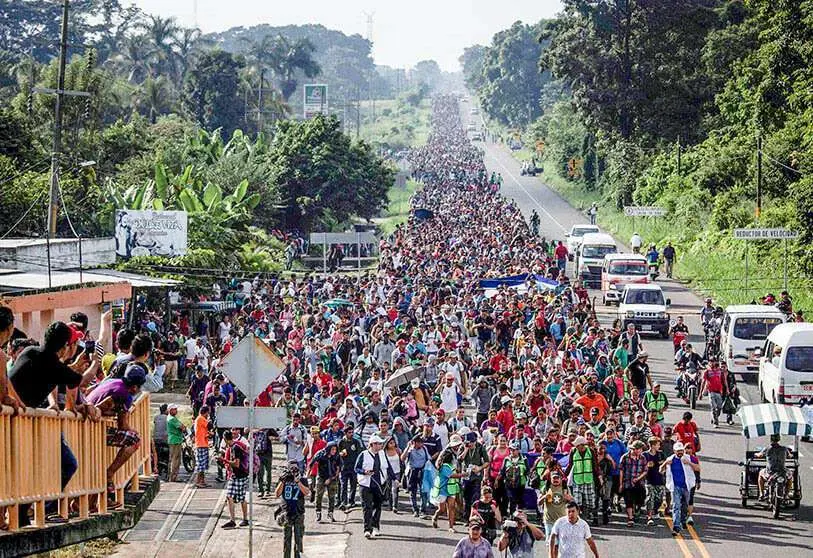Migrations: times are (informatively) changing

The intensification of human mobility, which characterises globalisation, among other factors, has meant that migration issues have been back on the agenda on a regular basis since the beginning of this century.
Spain, whose consolidation as a member state of the European Union has made it attractive to citizens from other world regions with far more difficult living conditions, both materially and politically, has not been immune to this phenomenon.
At the same time, and as a reaction to this globalising dynamic, an opposite trend has been developing, which considers migration for economic and socio-political reasons as a “problem” to be solved. This eminently negative view of immigration has gradually become established in the consciousness of European citizens: in various countries on the continent, immigration is often associated with marginality, the underground economy, criminal acts, the deterioration of public services, cultural conflicts, etc.
In this context, the media can contribute, by means of the reports they broadcast, towards favouring or hindering the integration processes of different immigrant groups.
The review of journalistic texts on migrations published over the last two decades allows us today to have a perspective vision of the facts they report, which contrasts with that which favours the immediacy of news and opinions and with what remains lodged in memory. A detailed analysis of this information and opinions shows us, first of all, that reality is much more complex, that economic and political migration issues are plural and require elaborate and refined positions, concepts and decisions. Let us see, without being too exhaustive and just as examples, some of the trends revealed by these analyses which are based on journalistic pieces published in the main Spanish newspapers:
On the one hand, we can observe the progressive displacement from local to global information and opinions published throughout these years, or if we want to say it in another way, migratory movements are now considered a phenomenon of continental dimension, which affect Spain due to its belonging to the European Union and its geographical location. Hence, for example, news from the first decade of the 21st century that associated crime and immigration from local events (or that, in the same way, related immigration to leisure and daily life) are gradually reducing their presence over time, and are no longer considered to be newsworthy, as opposed to information related to European policies or demographic issues.
On the other hand, the themes of the journalistic pieces that mention the term “(in)migration” in their headlines and titles show the complexity to which we referred before: immigration is linked to economic, social, political, demographic, geographical, religious, cultural or legal aspects.
We can also see how, in very specific periods, certain themes or sub-themes dominate the news: this is, for example, what happened in 2011 and 2012, when, as a result of the economic crisis, Spain once again recorded negative migratory balances after many years and emigration (the national “brain drain”) became the main issue. Or, likewise, what was reflected in the news in 2016, when several terrorist attacks that year on European territory caused the issue of terrorism to appear for the first time in our research associated with migration.
We could continue to point out mid-term trends and dominant themes in specific periods, but the basic idea is the same: migration issues are a complex reality that does not lend itself well to simplifying slogans. Alejandro Portes pointed out, in interviews following his award of the Princess of Asturias prize for Social Sciences in 2019, some of the features inherent in “late immigration” that are characteristic of our country: its contribution to the slowdown in demographic decline; its weight in the labour market; the cultural enrichment it brings; the relaxed attitude (in the sense that there has been no integration policy that imposed a rigid model), which has led to mutual accommodation (of foreigners to the host society and vice versa).
All these approaches must make room in the minds of citizens, coexisting with and, if necessary, displacing from the (informative) side the negative aspects that have been so strongly emphasised (although, as we have tried to show, they are not backed up by facts). It is a question of reformulating the framework evoked by the term “(in)migration”, of associating it with a plural, complex and sometimes contradictory reality, difficult to define in clichés and stereotypes.
Luis Guerra Salas, Professor of Spanish Language at the European University of Madrid, is one of the main researchers of the INMIGRA3-CM project, financed by the Community of Madrid and the European Social Fund

